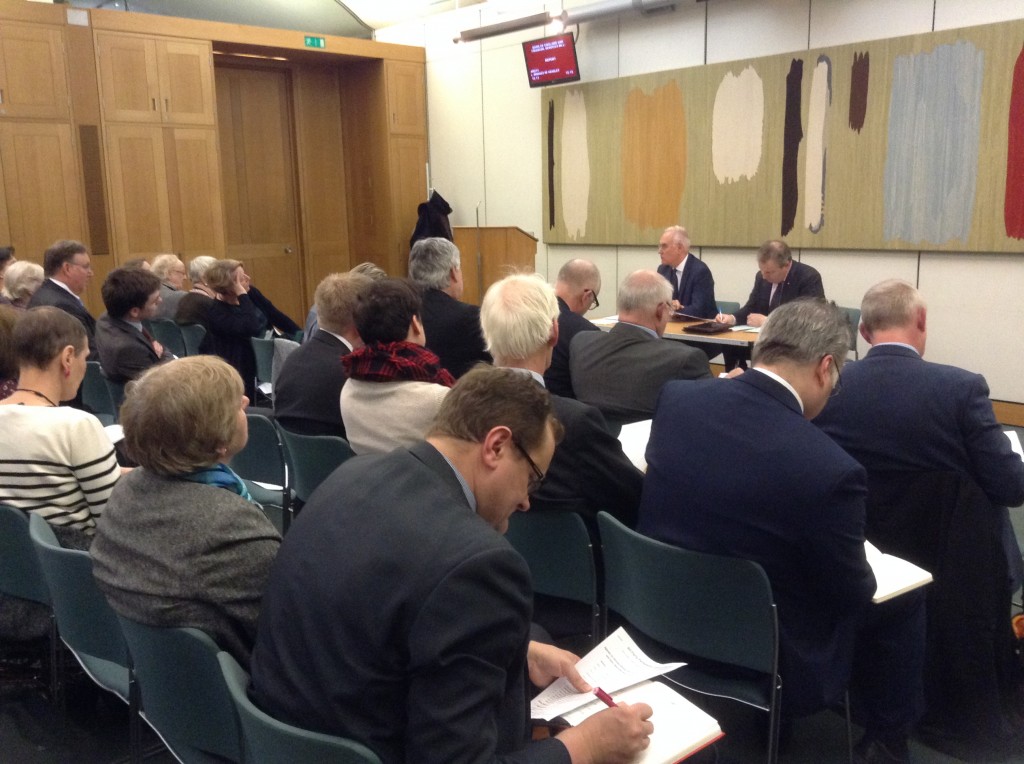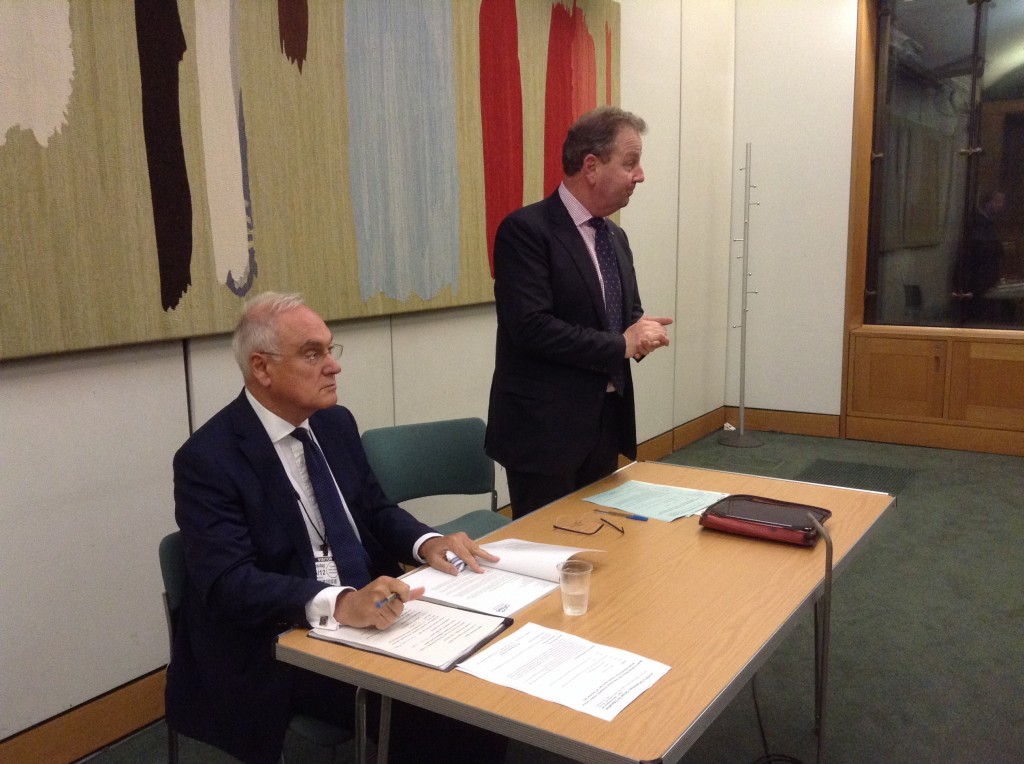On Tuesday 15th December 2015, the APPG for Education hosted Sir Michael Wilshaw, HM Chief Inspector of Education, Children’s Services and Skills, for an update on the work of Ofsted and a lively question and answer session.
Sir Michael focused on the role of Ofsted and the recent Ofsted annual report. He began by stating that Ofsted has driven improvements in education and increased accountability, but asserted that standards have not yet improved enough, saying that the UK’s education system is not yet world class. He added that Ofsted’s role is to challenge the education system to do better, as it has done by replacing the previous ‘satisfactory’ rating for education providers with ‘requires improvement’.
He moved on to the main themes of the annual report; a gap is continuing to persist between the success of primary schools and secondary schools, and likewise between schools in the South, and those in the Midlands and the North. He suggested that the reasons for this include that poor behaviour is not being tackled, and that the needs of the most able children are being ignored. He also highlighted that it was a mistake to remove testing in key stage 3, and that careers education is ‘a shambles’ in many schools.
Sir Michael stated that political will is needed to drive improvement in education; this was key to improving schools in London and must also happen in the Midlands and North. He continued that academisation is not effective without good leadership. The best head teachers are not going where they are needed most, and there is a recruitment problem. He concluded with some final remarks including his support for University Technical Colleges (UTC), his fears for the results of the Pisa tests, and the assertion that the further education sector is in ‘freefall’ due to funding issues. Finally, he praised the Government’s apprenticeships targets but warned that we must make sure that the apprenticeships are of high quality and that employers must take responsibility for them.
Danny Kinahan MP opened up the floor to questions. The first question concerned the training of school governors. Sir Michael said that professionalisation of school governance is important. A representative from Prospects asked if the National Citizen Service should be made part of the EBacc. Sir Michael responded that it is important to improve academic performance as a priority. Baroness Howe picked up on the subject of school governance, saying that good governors need local expertise. She asked what makes a good governor. Sir Michael replied that governors should challenge and support school leadership in equal measure. He added that governors should have mandatory training to know how to do this. Local Authorities used to provide such training, and must be continued by academies.
In response to a question from Flick Drummond MP, Sir Michael said that most teachers need training and professional development opportunities. He added that he is always surprised when staff training is far down the agenda. A representative from a school improvement board asked how teachers know they are getting their job right. Sir Michael responded that the progress pupils make is important and focus should not just be on their exam attainment. A representative from PTA UK asked what part parents play in improving schools. Sir Michael asserted that parents play a vital role, and should also be able to challenge and support schools and their leadership.
Barry Sheerman MP asked what drives change in schools. Sir Michael responded that there are so many people involved in schools – Regional School Commissioners, local MPs, academy trust executives etc. – who must all come together to make a difference. He added that having too many people involved can diffuse accountability.
A representative from BESA asked if the EBacc is broad enough, highlighting in particular that it does not include design and technology. Sir Michael pointed to the fact that there was nothing stopping a school from teaching both the EBacc and Design and Technology. He continued that he does have concerns for those children for whom a pure academic approach is not appropriate. He reiterated that UTCs have an important role to play.
Lord Hunt of Chesterton talked about the skills and education that businesses need. Sir Michael agreed that employers have a role to play and a right to ask questions when schools are not producing people that are capable in the workplace. He continued that the Northern Powerhouse vision will have problems if employers cannot hire skilled people.
A representative from Fasna (Freedom and Autonomy for Schools – National Association) asked what lessons secondary schools can learn from primaries, and what schools outside of London can learn from London schools. Sir Michael responded that the best primaries work collaboratively. A representative from the British Dyslexia Association asked if more can be done for dyslexic children. Sir Michael replied that individual schools deal with dyslexia well, and that it comes down to leadership again. The final question was from an executive head teacher of three London schools, who asked what incentives there are for getting good primary head teachers in secondaries. Sir Michael responded that Local Authorities can identify good leaders.
Danny Kinahan MP thanked Sir Michael and those who participated in the Q&A, and brought the meeting to a close.


